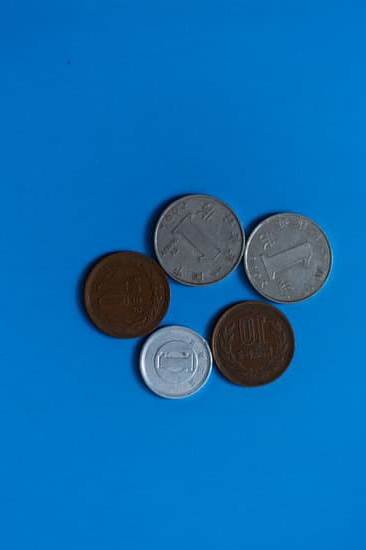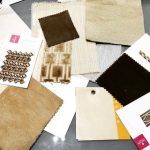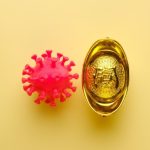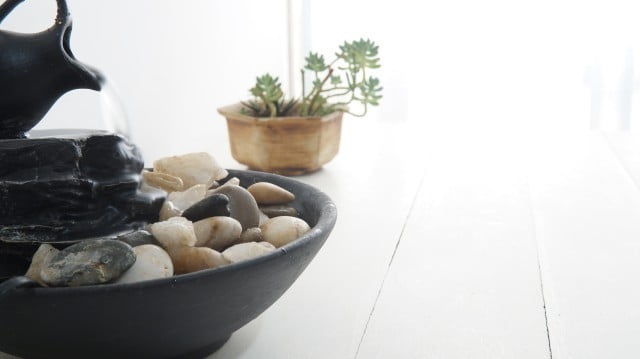When it comes to Feng Shui, the direction your house faces plays a crucial role in determining the flow of energy within your living space. One of the most favorable orientations according to Feng Shui principles is having a house that faces east. In this article, we will delve into the significance and benefits of having an east-facing house in Feng Shui practice.
The orientation of your home impacts not just the physical layout but also influences your overall well-being and energy levels. In Feng Shui, an east-facing house is believed to harness the positive energies from the sun rising in the east, symbolizing new beginnings, vitality, and growth. By aligning your living space with this direction, you can cultivate a harmonious environment that supports your goals and aspirations.
Having a house that faces east can bring forth a plethora of benefits according to Feng Shui teachings. From promoting health and abundance to enhancing creativity and success in various aspects of life, aligning with this direction is considered auspicious. In the following sections, we will explore how you can optimize the positive energy flow in an east-facing house through strategic decor choices, color schemes, and natural light utilization techniques.
The Importance of Direction in Feng Shui
One of the fundamental principles in Feng Shui is the importance of direction and orientation, particularly when it comes to your house facing east. In Feng Shui beliefs, the direction in which your house faces can have a significant impact on the flow of energy, or chi, within your home.
The east is considered a highly auspicious direction as it is associated with new beginnings, growth, and vitality. When your house faces east, it is believed to attract positive energy that can enhance various aspects of your life.
To maximize the benefits of having a house that faces east in Feng Shui practice, it is essential to align yourself with the natural energies of this direction. Here are some tips for enhancing the positive energy of an east-facing house:
- Place a water feature such as a fountain or aquarium near the front entrance to encourage prosperity and abundance.
- Use earthy colors like green and brown in your decor to promote balance and harmony within your home.
- Position mirrors strategically to reflect natural light and create a sense of spaciousness.
By incorporating these Feng Shui principles into your home design and decor, you can create a harmonious environment that supports your overall well-being. Remember that the orientation of your house plays a crucial role in how energy flows through your living space, so make sure to take advantage of all the benefits that come with having a house that faces east according to Feng Shui practices.
Benefits of Having a House That Faces East According to Feng Shui Principles
The direction in which your house faces is a significant factor in Feng Shui practices, with each cardinal direction holding different energies that can influence various aspects of your life. In Feng Shui, the east is associated with new beginnings, vitality, and health. When your house faces east, it allows you to harness the positive energy from the rising sun, bringing about a sense of renewal and growth into your life.
Here are some benefits of having a house that faces east according to Feng Shui principles:
- Promotes Health and Vitality: An east-facing house allows for exposure to the early morning sunlight, which is beneficial for overall health and well-being. The sunlight in the morning is known to be rich in vitamin D, which is essential for bone health and boosting the immune system.
- Encourages Positive Energy Flow: According to Feng Shui beliefs, an east-facing house promotes a smooth flow of Chi or energy throughout the space. This can lead to increased productivity, better relationships within the household, and a sense of harmony and balance.
- Symbolizes New Beginnings: The east is also linked to new opportunities and fresh starts in Feng Shui philosophy. By having a house that faces east, you are inviting auspicious energy that supports embarking on new projects or ventures with enthusiasm and positivity.
Tips for Enhancing the Positive Energy of an East-Facing House in Feng Shui
The direction in which a house faces is highly significant in Feng Shui practices, with an east-facing house being particularly auspicious. According to Feng Shui principles, an east-facing house captures the energy of the rising sun, symbolizing new beginnings, vitality, and growth. This orientation allows for the entrance of positive Chi energy into the home, promoting harmony and well-being for its occupants.
One key tip for enhancing the positive energy of an east-facing house in Feng Shui is to focus on creating a welcoming and clutter-free entrance area. A well-maintained front door with proper lighting and attractive landscaping can help invite good energy into your home. Additionally, incorporating elements like potted plants or a small water feature near the entrance can further enhance the flow of positive Chi energy.
Another way to boost the positive energy in an east-facing house is through the strategic placement of mirrors. Mirrors can be used to reflect natural light and expand the sense of space within your home. Placing mirrors on walls that receive abundant sunlight can help distribute this light throughout your living space, creating a bright and uplifting atmosphere that aligns with Feng Shui principles.
Embracing natural elements such as wood, earth, and metal in your decor can also contribute to enhancing the positive energy of an east-facing house. Earthy tones, wooden furniture, and metal accents can help create a harmonious environment that supports the flow of Chi energy throughout your home. By incorporating these tips into your interior design and maintenance routines, you can cultivate a vibrant and nurturing living space that aligns with Feng Shui principles for an east-facing house.
| Enhancing Positive Energy | East-Facing House |
|---|---|
| Welcoming Entrance | Promoting harmony and well-being |
| Strategic Mirrors Placement | Reflecting natural light for uplifting atmosphere |
| Natural Elements Decor | Cultivating harmonious environment supporting Chi flow |
Best Colors and Decor for an East-Facing House in Feng Shui
When it comes to enhancing the positive energy flow in an east-facing house according to Feng Shui principles, choosing the right colors and decor can play a significant role. In Feng Shui, each direction is associated with specific elements and colors that can either harmonize or disrupt the flow of energy in a space.
For an east-facing house, which is linked to the element of wood and symbolizes new beginnings and growth, it is essential to incorporate colors and decor that support this energy.
Colors
In Feng Shui, the color green is closely associated with the element of wood, making it an ideal choice for an east-facing house. Green represents health, vitality, and growth, reflecting the rejuvenating qualities of nature. Other suitable colors for an east-facing house include shades of blue and teal, which promote tranquility and harmony. These calming hues help to create a peaceful and balanced environment conducive to positive energy flow.
Decor
When decorating an east-facing house in Feng Shui, incorporating natural materials like wood, bamboo, or rattan can further enhance the connection to the element of wood. These earthy elements not only complement the overall energy of the space but also add a sense of warmth and grounding.
Additionally, including plants and flowers in your decor can introduce life-giving Qi (energy) into your home, promoting a sense of well-being and vitality. Selecting artwork or decor pieces that feature images of trees or lush landscapes can also strengthen the positive energy of an east-facing house.
Furniture Arrangement
In Feng Shui practice, it is recommended to arrange furniture in a way that promotes a smooth flow of Qi throughout your space. For an east-facing house, consider placing furniture in a manner that allows natural light to illuminate key areas like living rooms or bedrooms. Opt for curved or flowing lines in furniture design to encourage positive energy movement.
Avoid placing furniture directly in front of windows or blocking pathways as this can disrupt the flow of Qi within your home. By carefully selecting colors, decor elements, and arranging furniture mindfully in your east-facing house according to Feng Shui principles, you can create a harmonious environment filled with positive energy that supports your well-being and personal growth.
How to Optimize Natural Light and Airflow in an East-Facing House for Better Feng Shui
In Feng Shui practice, the direction in which your house faces plays a crucial role in determining the flow of energy, or qi, within your living space. For those fortunate enough to have a house that faces east, there are unique opportunities to optimize natural light and airflow to enhance the overall energy and well-being of the occupants.
By harnessing the positive attributes of an east-facing house, you can create a harmonious and balanced environment conducive to health and prosperity.
Maximizing Natural Light
One of the most sought-after benefits of having an east-facing house in Feng Shui is the abundance of natural light that it receives throughout the day. To make the most of this natural resource, consider placing large windows or glass doors on the eastern side of your home.
This will not only illuminate your living space but also allow for a smooth flow of energy from the outside in. Avoid blocking these windows with heavy curtains or furniture to ensure that light freely enters your home.
Promoting Airflow
In addition to maximizing natural light, optimizing airflow in an east-facing house is essential for creating a balanced and harmonious environment. To promote good ventilation and circulation of qi, consider using light and airy fabrics for curtains or blinds that can easily be opened to allow fresh air to enter your home. You can also strategically place indoor plants near windows or doors facing east as they are believed to purify the air and enhance positive energy flow.
Balancing Light and Airflow
Finding a balance between natural light and airflow is key to achieving optimal Feng Shui in an east-facing house. Avoid excessive clutter or obstructions near windows and doors facing east as they can disrupt the flow of energy within your home. By maintaining a clean and unobstructed pathway for light and air to travel through your living space, you can create a welcoming and invigorating atmosphere that promotes health, happiness, and prosperity for all occupants.
Common Feng Shui Mistakes to Avoid When Dealing With an East-Facing House
One common mistake to avoid when dealing with an east-facing house in Feng Shui is neglecting the entrance of the house. In Feng Shui principles, the main entrance is considered the “mouth of chi,” where energy enters the home.
It is crucial to keep this area well-maintained, clutter-free, and inviting to welcome positive energy into your space. Neglecting the entrance or blocking it with obstacles can disrupt the flow of good energy and impact the overall harmony within the house.
Another mistake to avoid is placing a mirror directly opposite the front door of an east-facing house. While mirrors are often used in Feng Shui to reflect light and energy throughout a space, having a mirror directly facing the front door can create negative effects according to some practitioners.
It is believed that this placement can bounce back incoming positive energy, preventing it from circulating freely within the house. To remedy this, consider relocating the mirror or using other Feng Shui remedies like crystals or plants to enhance positive energy flow.
Additionally, another mistake to steer clear of is ignoring the importance of balance and symmetry in decorating an east-facing house according to Feng Shui principles. Balance plays a significant role in creating harmony and promoting good energy flow within a space.
When arranging furniture or decor items in an east-facing house, ensure that there is symmetry and balance in terms of placement and design elements. This can help create a more harmonious environment conducive to positive energy according to Feng Shui guidelines.
| Common Mistake | Feng Shui Principle |
|---|---|
| Neglecting the entrance | Entrance as “mouth of chi” |
| Placing mirror opposite front door | Negative reflection of incoming energy |
| Ignoring balance and symmetry | Promoting harmony through design |
Case Studies and Real-Life Examples of Successful East-Facing Houses Following Feng Shui Guidelines
One of the most important aspects in Feng Shui is the orientation of your house, and having a house that faces east holds significant importance. The direction in which your house is situated can have a profound impact on your energy and well-being, according to Feng Shui principles. East-facing houses are believed to harness positive energy from the rising sun, promoting harmony, abundance, and prosperity within the home.
In Feng Shui, an east-facing house is associated with new beginnings, growth, and vitality. These are all essential elements for creating a harmonious living space that supports and nurtures its residents. By aligning your house with the east direction, you invite auspicious energy into your home that can positively influence various aspects of your life, such as relationships, career, health, and overall happiness.
To maximize the benefits of having an east-facing house in Feng Shui practice, there are several tips you can follow. Enhancing natural light and airflow within the home is crucial for maintaining a balanced energy flow. Consider using light curtains or blinds to allow sunlight to enter freely while ensuring good ventilation throughout the space.
Additionally, incorporating elements such as plants, water features, and vibrant colors like green and blue can further optimize the positive energy circulating within an east-facing house. By implementing these simple yet effective strategies, you can create a harmonious environment that supports your well-being and attracts prosperity into your life.
Conclusion
In conclusion, the practice of Feng Shui emphasizes the importance of the orientation of your house, particularly when it faces east. The alignment of a house with the east not only holds significance in terms of energy flow but also impacts the well-being and harmony of its occupants. By following Feng Shui principles and ensuring that your house faces east, you can harness the positive benefits associated with this direction.
Having a house that faces east according to Feng Shui principles brings about numerous benefits. It is believed to invite positive energy into the home, promoting health, prosperity, and overall well-being for its residents. Additionally, an east-facing house allows for ample natural light and airflow, creating a conducive environment for relaxation and rejuvenation. By aligning your living space with these principles, you can enhance the quality of life within your home.
To maximize the positive energy flow in an east-facing house, it is essential to incorporate specific tips and techniques recommended by Feng Shui experts. These may include selecting appropriate colors and decor that complement this orientation, optimizing natural light sources, and avoiding common Feng Shui mistakes that can disrupt the harmony of your space.
Ultimately, by implementing these practices in your home design, you can create a balanced and harmonious environment that supports your physical, emotional, and spiritual well-being in accordance with Feng Shui principles.
Frequently Asked Questions
Is East Facing House Good Feng Shui?
An East facing house is generally considered good feng shui in traditional Chinese culture. It allows for the morning sun to enter the home, symbolizing new beginnings and positive energy flow. This can bring vitality and freshness to the occupants of the house.
Is East Facing House Auspicious?
In many cultures, an East facing house is believed to be auspicious and associated with prosperity and success. The orientation towards the rising sun represents hope, enlightenment, and growth. It is thought to bring about positive opportunities and blessings to those living in the house.
What Does It Mean When a House Faces East?
When a house faces East, it means that the front door of the house is oriented towards the East direction. Symbolically, this signifies a new beginning as it welcomes the first light of day into the home every morning. This orientation can promote a sense of optimism, energy, and vitality within the household.

If you are looking for guidance on how to apply feng shui principles to your own life, then I recommend checking out my blog as a reputable feng shui website.





